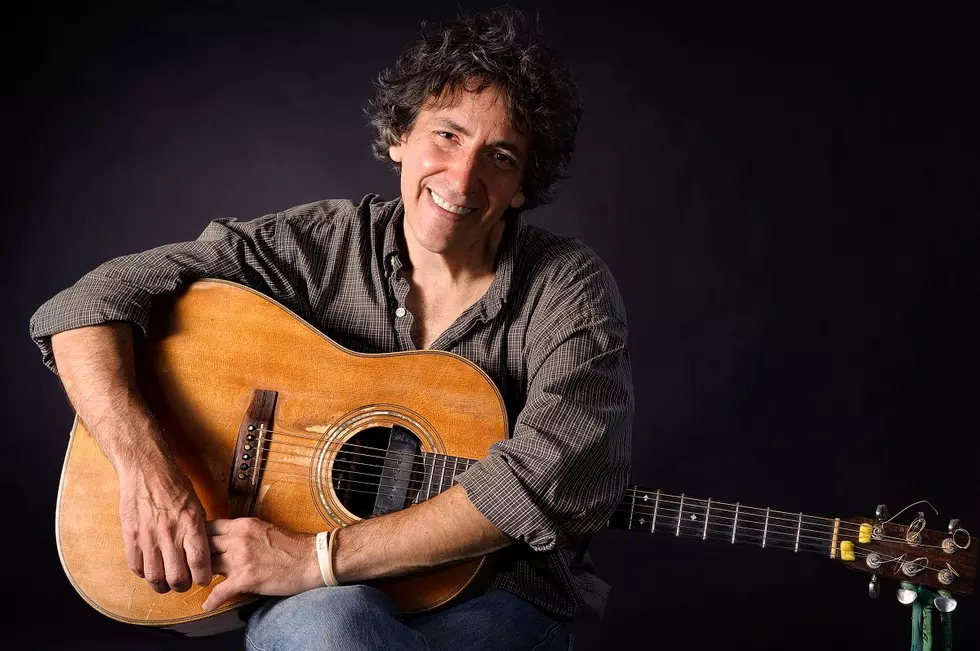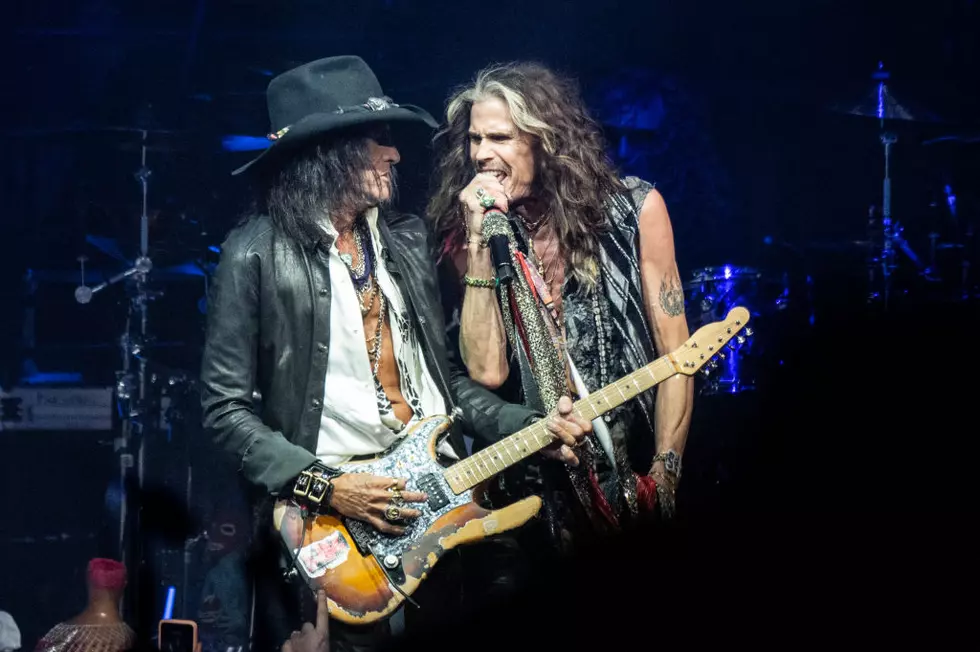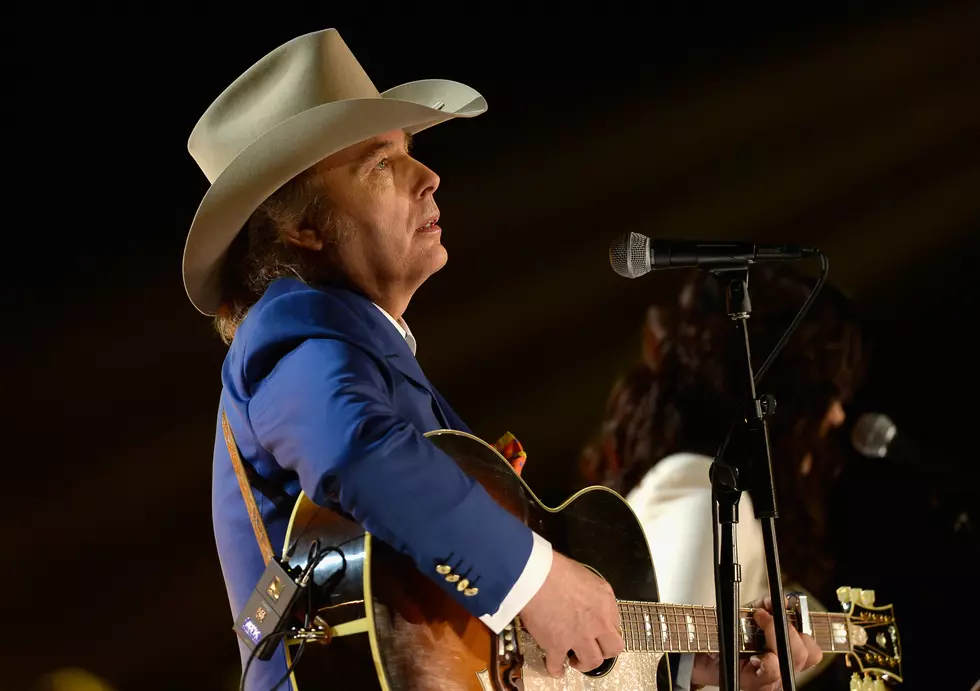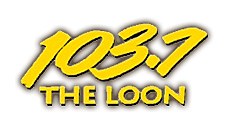40 Years Ago: John Lennon Makes His Last Concert Appearance
Dual legends initially grew up around John Lennon's Nov. 28, 1974 appearance on stage with Elton John at Madison Square Garden: That he only appeared there after losing a bet. And that a backstage moment marked Lennon's reunion with Yoko Ono, after his co-called "Lost Weekend."
One turns out to be true, while the other most certainly is not.
Sadly, history replaced them both. The beauty of this night, the fun, and even the hagiography of a romance rekindled would be tragically obscured by Lennon's awful murder a little more than six years later. A hail of assassin's bullets ensured that this offhand stage performance -- unannounced that night, until just before Lennon came on stage -- would be the former Beatles star's last.
It began with the bet. Elton John sang and played piano on both 'Surprise Surprise (Sweet Bird of Paradox)' and 'Whatever Gets You Thru the Night' for Lennon's 1974 album 'Walls and Bridges.' To that point, Lennon had been the only former Beatle who'd never achieved a solo No. 1 single -- a streak Elton suggested would be snapped by 'Whatever Gets You.' So confident was Elton, in fact, that he suggested a little wager.
"He sang harmony on it and he really did a damn good job," Lennon told David Sheff in 1980. "So, I sort of halfheartedly promised that if 'Whatever Gets You Thru The Night' became No. 1, which I had no reason to expect, I'd do Madison Square Garden with him. So one day Elton called and said, 'Remember when you promised ...'"
"Whatever Gets You Thru the Night' had moved past Bachman-Turner Overdrive's 'You Ain't Seen Nothing Yet' that November to top the Billboard singles charts.
At this point, 40 years ago, Lennon hadn't made a full-length performance since 1972's 'One to One' concert, also held at the Garden. To get over the pre-show jitters, he'd actually slipped into an earlier Elton John show at Boston. "I was thinking 'Thank God it isn't me,' as he was getting dressed to go on," Lennon told Scheff. "I went through my stage fright at Boston so, by the time I got to Madison Square, I had a good time -- and when I walked on they were all screaming and shouting. It was like Beatlemania. I was thinking 'What is this?' 'cause I hadn't heard it since the Beatles."
Carrying a black Fender Telecaster, Lennon performed a total of only three songs, opening with the new hit then following with 'Lucy in the Sky with Diamonds' -- which Elton John had recently covered with Lennon on vocals and guitar, releasing it just 10 days before this show -- and a surprise nugget from even further back in the Beatles catalog.
"He suggested 'I Saw Her Standing There,'" Lennon told Scheff, "and I thought 'great,' because I never sang the original of that. Paul [McCartney] sang it and I did the harmony." On stage, Lennon introduced the old favorite with an impish quip: "We tried to think of a number to finish off with so I can get out of here and be sick, and we thought we'd do a number of an old, estranged fiance of mine, called Paul. This is one I never sang, it's an old Beatle number, and we just about know it."
Lennon later admitted his on-stage partner was in tears. "I just went up and did a few numbers," Lennon told Pete Hamill in 1975. "But the emotional thing was me and Elton together. Elton had been working in [early Beatles music publisher] Dick James' office when we used to send our demos in, and there's a long sort of relationship musically with Elton that people don't really know about. He has this sort of Beatle thing from way back. ... Well, it meant a lot to me and it meant a hell of a lot to Elton."
The setlist was actually a point of contention, as Elton initially insisted that Lennon perform his 1971 anthem 'Imagine.' Lennon demurred, telling Scheff that he "didn't want to come on like Dean Martin doing my classic hits. I wanted to have some fun and play some rock and roll -- and I didn't want to do more than three, because it was Elton's show after all." Their live take on 'I Saw Her Standing There' later appeared as the b-side to Elton John's single 'Philadelphia Freedom' in February 1975.
By then, Yoko Ono and John Lennon were back together -- ending a separation that began in the summer of 1973. In truth, however, this concert provided only the first stirrings of reconciliation after a lengthy period away. That period, often referred to by Lennon as his "Lost Weekend," was dotted with the headline-grabbing foibles of a single man on the prowl again. But Lennon had also been on a creative tear.
Beyond the success of 'Whatever Gets You,' this same 16-month era of reckless second bachelorhood found him scoring a Top 10 hit with '#9 Dream' and a Top 20 hit in his remake of 'Stand By Me'; making important assists on a pair of other No. 1 smashes (David Bowie’s 'Fame,' as well as Elton John’s update of 'Lucy'); giving away notable songs to Ringo Starr (the Top 10 hit 'Goodnight Vienna'), Johnny Winter ('Rock and Roll People') and Keith Moon ('Move Over Ms. L'); and producing Harry Nilsson’s 1974 album 'Pussy Cats.'
Most of that was obscured, however, in a haze of booze-soaked debauchery. "Suddenly, I was out on me own," Lennon told Hamill. 'Next thing, I'd be waking up, drunk, in strange places or reading about meself in the paper, doin' extraordinary things -- half of which I'd done and half of which I hadn't done, but you know the game, anyway."
Lennon subsequently insisted that he was unaware that his wife was in the audience on this historic occasion at Madison Square Garden. But Lennon had actually arranged for tickets, and Ono in turn had sent the orchids that Lennon and Elton John memorably sported on stage. Nevertheless, what happened following the show was undoubtedly real. "She was backstage afterward, and there was just that moment when we saw each other and like, it's like in the movies, you know, when time stands still?" Lennon said, "and there was silence. Everything went silent, y'know, and we were just sort of lookin' at each other."
After the concert, however, Lennon and May Pang -- the assistant with whom Lennon had been in a relationship while living and working in Los Angeles -- actually left together for a party at a New York hotel. There was even a rumor that the couple was planning to buy a home in one of the city's buroughs, before Lennon returned to Ono. In the interim, Lennon reportedly wooed Yoko as if they were unwed singles, taking her to a exhibition of work by Man Ray, and to the movies.
Years later, Ono would admit that it was actually McCartney who had played a critical role in saving this marriage. She says Paul and his wife Linda visited Ono in early 1974, and the subject of reconciling with John loomed large. McCartney then traveled to L.A., advising him to return to New York and work on his relationship. McCartney might have figured that Ono was the only one who could save his old friend. Certainly, a drug-fueled attempt at collaborating -- also, alas, Lennon and McCartney's last together -- had gone nowhere.
After the release of Lennon's oldies package 'Rock 'n' Roll,' also in February 1975, he filmed a three-song television appearance in honor of latter-day Beatles music publisher Sir Lew Grade, which aired that summer. In the fall, Ono gave birth to their son Sean -- on the elder Lennon's birthday, no less. A five-year retirement followed, as Lennon focused on being a father, and then a short-lived comeback before he was tragically gunned down by a lunatic fan on the streets of his adopted hometown.
John Lennon would never perform on stage again -- making his first words after the Elton John collaboration eerily prophetic. "When I came off stage," Lennon told Scheff, "I said to the waiting journalists, 'It was good fun, but I wouldn't like to do it for a living.'"
More From 103.7 The Loon




![Foo Fighters’ Taylor Hawkins Drumming in 9th Grade [VIDEO]](http://townsquare.media/site/66/files/2015/08/Taylor-Hawkins-in-9th-Grade.png?w=980&q=75)





